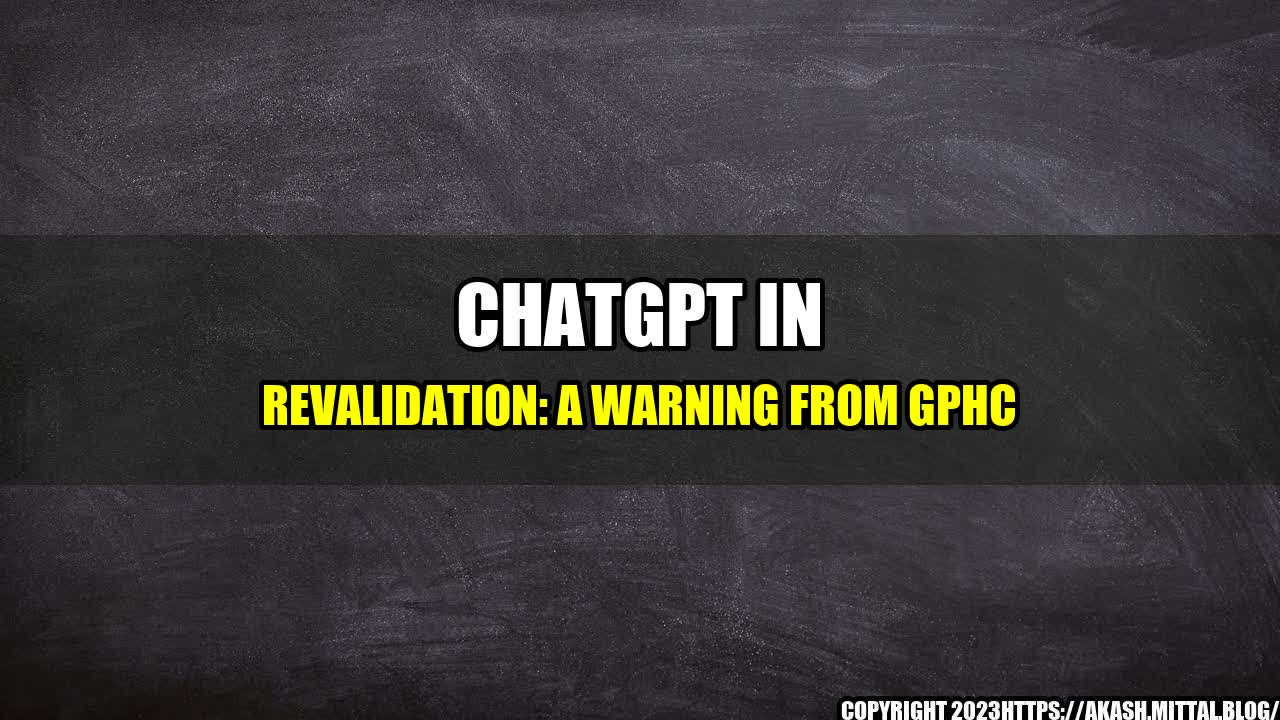
Imagine this scenario: you're a chemist druggist about to undergo revalidation, and you're feeling a bit nervous. You've been using ChatGPT, an AI-powered chatbot, to help you prepare for the assessment. Suddenly, you receive a letter from the General Pharmaceutical Council (GPhC) warning you that your use of ChatGPT could trigger a Fitness to Practise (FtP) case. What do you do?
This is the reality for some chemist druggists who have been using ChatGPT in their preparations for revalidation. While the technology itself is not necessarily problematic, the way it is being used could be grounds for disciplinary action.
The GPhC has warned that relying too heavily on ChatGPT, especially if it is used to replace human interaction entirely, could be seen as a breach of professional conduct. The regulator has emphasised that revalidation requires chemist druggists to demonstrate that they are able to communicate effectively with patients, colleagues, and other healthcare professionals. By relying on an AI chatbot, chemist druggists may be sending the message that they are not capable of such communication.
Beyond this, the GPhC has also expressed concerns about the accuracy and reliability of AI chatbots, particularly in the context of providing advice on complex medical issues. While ChatGPT and similar technologies can be helpful tools, they should never be seen as a substitute for professional judgement and experience.
The risks associated with ChatGPT in revalidation are not just theoretical - there have been real-life cases where chemist druggists have faced disciplinary action as a result of their use of AI chatbots. In one case, a chemist druggist was found to have consulted a chatbot for advice on prescribing a medication to a patient, without seeking additional input from a qualified healthcare professional. This led to a serious adverse event, and the chemist druggist was subsequently suspended from practice.
In another case, a chemist druggist was found to have used ChatGPT to complete their revalidation portfolio without disclosing this fact to the regulator. This was seen as a breach of the GPhC's standards for pharmacy professionals, which require honest and open communication.
So, how can chemist druggists ensure that their use of ChatGPT does not lead to disciplinary action? Here are three key recommendations:
While the above recommendations may seem straightforward, they are not always easy to implement in practice. Here are some personal anecdotes and case studies that illustrate the challenges that chemist druggists may face:
The use of ChatGPT in revalidation can be a helpful tool for chemist druggists, but it comes with potential risks. By following the recommendations outlined above and being mindful of the limitations of AI chatbots, chemist druggists can demonstrate their professionalism and avoid disciplinary action.
News & Feature
Curated by Team Akash.Mittal.Blog
Share on Twitter Share on LinkedIn